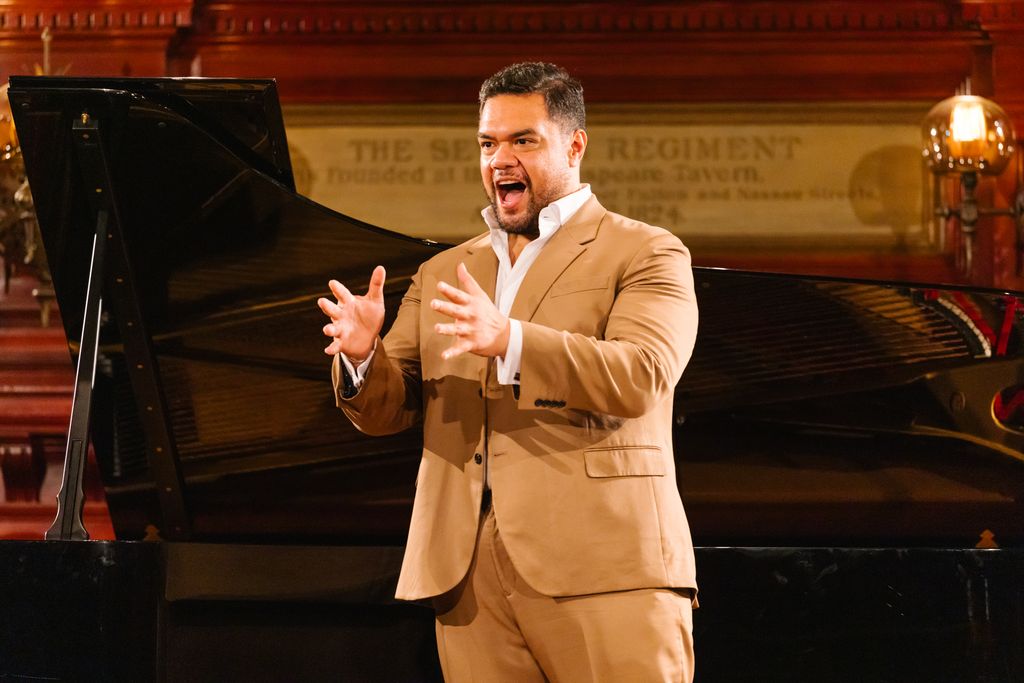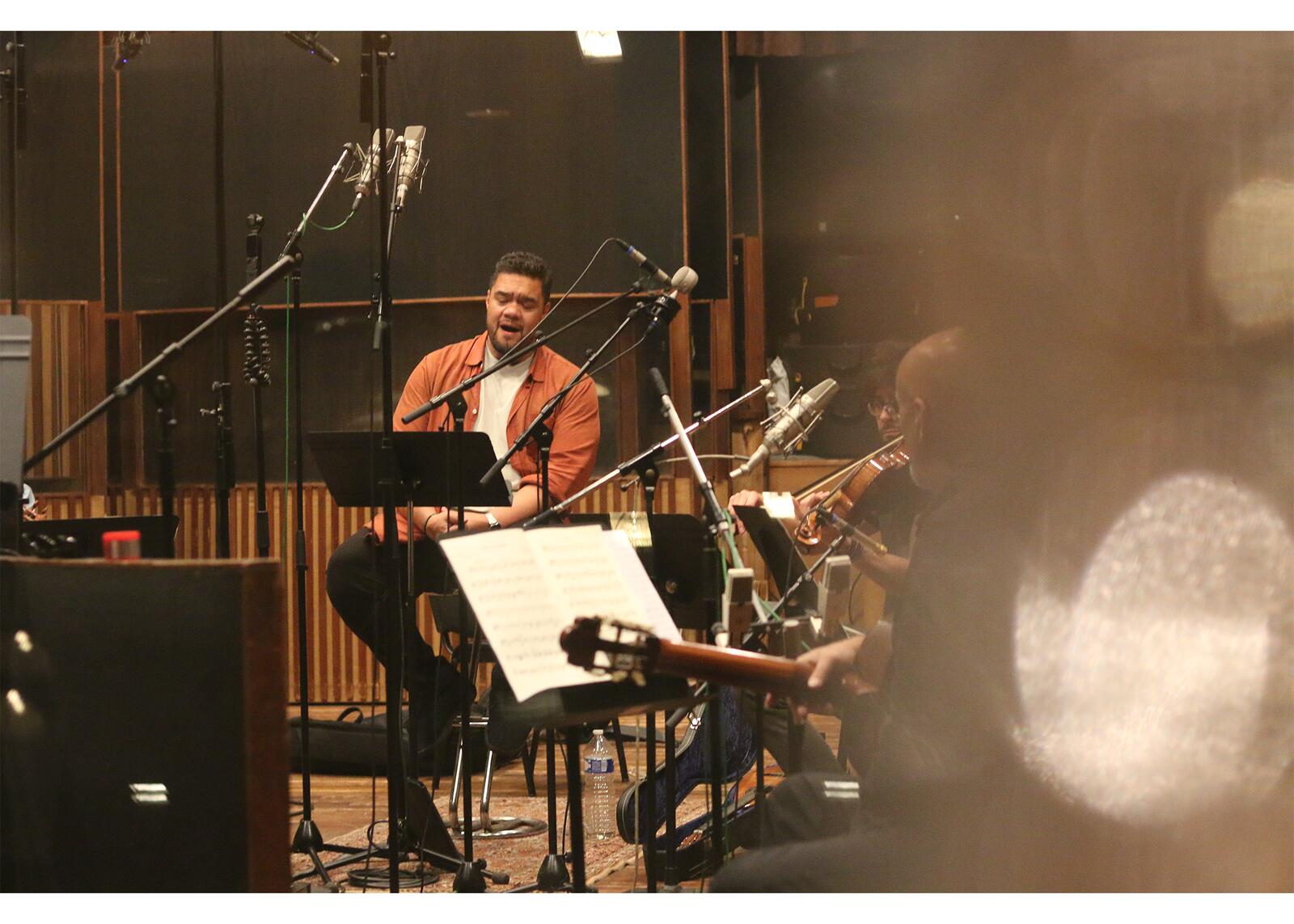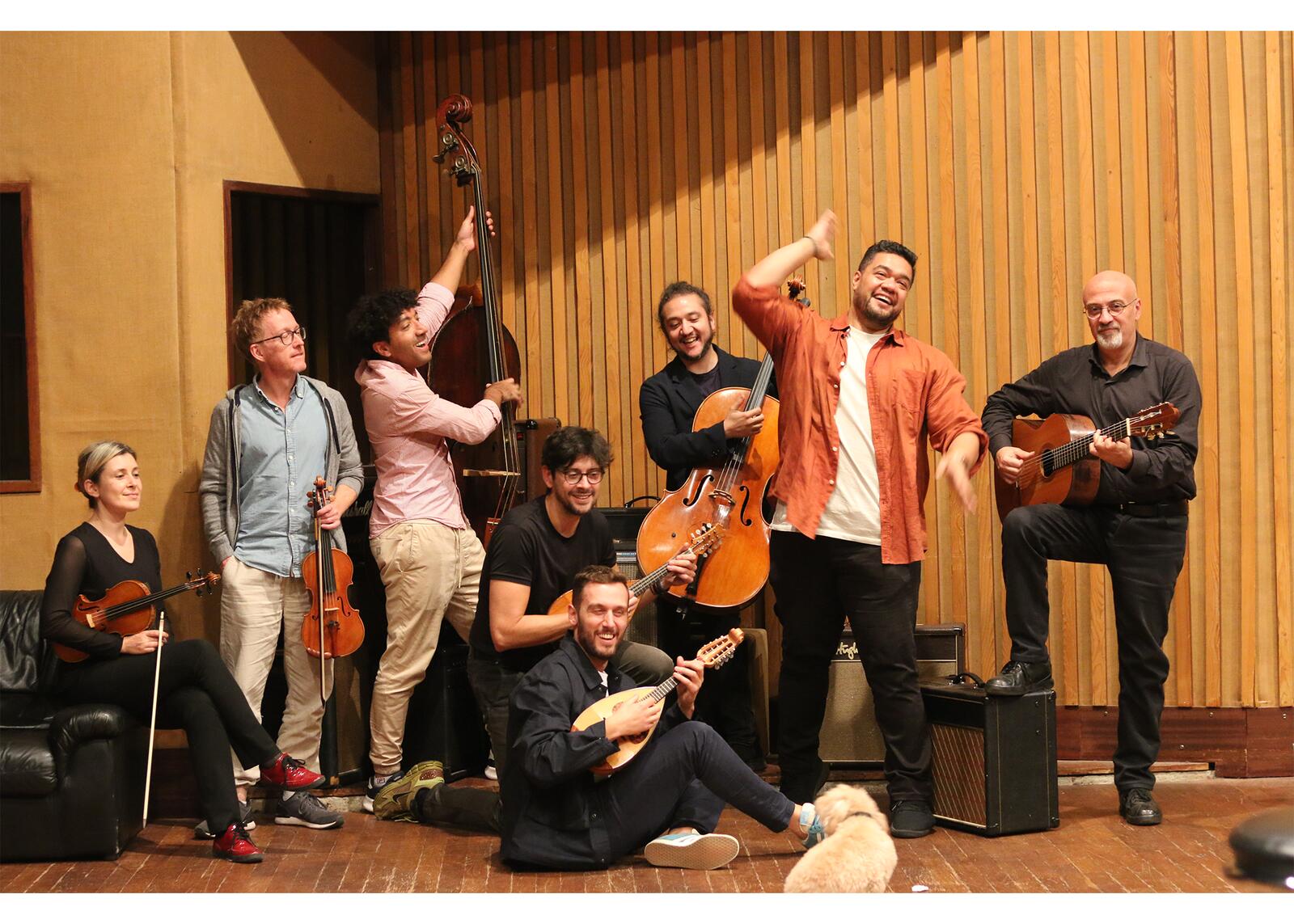
Pene Pati revels in superb accompaniment — in recital and the recording studio
ReviewPene Pati’s recent recital at the Park Avenue Armory and his newly released recording of Neapolitan songs have one thing in common: superb accompaniment. Ronny Michael Greenberg at the recital piano and the baroque orchestra II Pomo d’Oro in the recording studio provide vibrant, dramatic, and consummately supportive playing for this energetic Samoan tenor. His relationship to the music in each medium, however, differed in the extreme.
In the Armory’s intimate Board of Officers Room Pati opened with Fauré’s Poems of the Day, consisting of three short pieces; “Meeting”, ”Forever”, and “Farewell”. These are shadowy affairs, sorrowful and seeped in atmosphere, but Pati maintains a robust attitude as if each song was a friendly bout rather than a dive into elusive romance.

“Invitation to journey”, Duparc’s expression of decadence and desire with a distinct Liebestode vibe, followed with much the same results. Filling the room with nicely articulated French and confident sound seemed Pati’s goal, which he achieved at the cost of emotional involvement. The composer’s “Phidylé”, a haunting collision of the exotic and erotic, a true dramatic set-piece, was perhaps the evening’s most profound loss.
Pati greeted Lily Boulanger’s commanding songs of grief, Clearings in the sky, set to three poems by Francis Jammes, with surprising refinement. Finally Pati evoked a sense of place, both metaphoric and illusionary, singing with restraint and insight. In “Sometimes I am sad”, he nailed the uncertainty and desolation of the piece and brought its delicate emotionalism to the fore.

Throughout the Fauré, Duparc and especially when interpreting Boulanger’s complex harmonic language, Greenberg accompanied Pati with such clarity of intention that at times his piano playing served as both counterpoint to and compensation for the tenor’s lack of interpretation. Accompanists are judged by how well they support the singer but in so many instances here, Pati was supplanted by Greenberg’s masterful playing.
In the improved second half of the program Pati exhibited subtle phrasing and vocal refinement in songs by English composers, Roger Quilter and Benjamin Britten. Quilter’s “Go, Lovely Rose”, his widely regarded masterpiece, with text by Edmund Waller, was sung with folkloric conviction. In the two settings to Shakespeare texts, “Take, O Take Those Lips Away”, and “O Mistress Mine”, Pati sang with elegance and feeling, capturing the tenderness of the former and sly playfulness of the latter.

Pati found beauty in Britten’s “The Last Rose of Summer”, with expressive word coloring. In “Seascape”, he evoked Britten’s setting of W.H. Auden’s serene and roiling treatise on the sea, utilizing delicate pause and beautifully extended lines. The tenor adopted an effective storytelling posture for “The Choirmaster’s Burial”, Britten’s musical treatment of Thomas Hardy’s inherently musical poem, suggesting that on the recital stage he appeared more at home, or perhaps simply better prepared, to perform these relatively contemporary songs. Greenberg created his own poetry throughout.
Four Strauss songs concluded the recital and Pati sang them with gravity, passion and thoughtful levity as required. But the opener, “Rest, my soul!”, a song that is decidedly benedictory and closing with “Secret invitation”, brimming with romantic possibility, felt oddly juxtaposed. Framing “Ah, unhappy man that I am”, and “All Souls’ Day”, their sad ironies notwithstanding, “Secret Invitation”, felt more like an attempt to end on a high note instead of employing it to introduce young love to be followed by the complexities of life. This was Strauss after all.
Pati’s achieved that high note ending in his encore; Giulio Caccini’s “Amarilli, mia bella” an exquisite and quietly intense statement of love, in which Pati exuded softness of tone and subtle shading and Greenberg’s piano possessed the stillness and elegance of a lute. Then came an instrumental bridge suggesting “Home Sweet Home” and a Samoan song, “Le manutagi e ua taxi ta’amilo”, sung in his native language with a knowing sweetness. How satisfying it was to hear this degree of vocal involvement when the evening began with such broad strokes.

If Pati’s recital performance was uneven, his recently released Warner Classics recording Serenata a Napoli captures him at his sunny and consistent best. These Neapolitan songs require a particular lightness and deft phrasing to establish and maintain their character. Happily and with considerable elan, Pati traverses the collection, expressing passion, melancholy and joy (with a particular emphasis on joy) to create a charming and irresistible listening experience.
Il Pomo d’Oro, the Venice based baroque orchestra’s playing is spacious and full of rich detail. So full in fact that even the most familiar songs, namely “O sole mio”, and “Funiculi, funiculá”, opening and closing the recording, have a sparkling freshness about them. The orchestra takes centerstage on several tracks, including “Preludio” with passionate playing under violist and conductor Giulio D’Alessio and “Tarantella” in which the ensemble dances with dissonance.

Comments